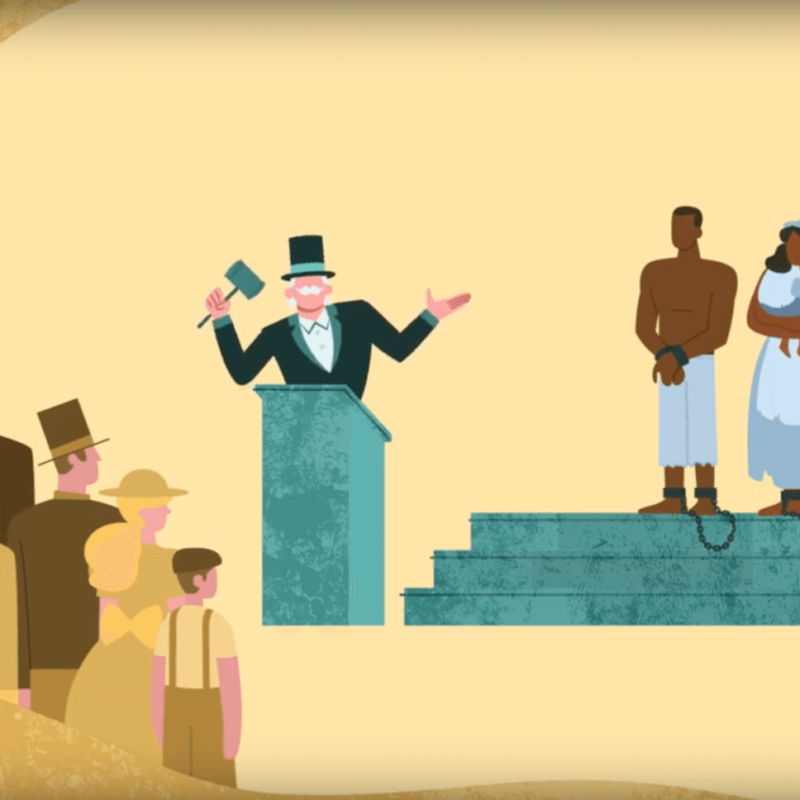In her recent TEDx Talk “What a Sex Worker Can Teach Us About Human Connection”1 Nicole Emma spun a story of prostitution as one of healing for toxic masculinity. She characterized her role in this story as a “sexual health professional.” Her story pulls you in as all fairytales do, but to me, that is all it really was—a fairytale. I did not find the everyday reality of prostitution in her story.
As a survivor of sexual exploitation in prostitution, I want to hear each survivor’s story. I want to connect to the realities they experienced and see the bigger picture of prostitution. So I listen.
Nicole begins with a story of a lonely man who “hadn’t been touched for two years since his wife died.”2 And she follows that with a stat that 80% of suicides are men. She is characterizing sex buyers as lonely, depressed, beaten down men who just need a sex break. Are they?
I felt my sex buyers’ rage, which might be redirected depression, but it looks a little different from what she is describing. Maybe my sex buyers’ mood lifted as they threw me against the wall, but that wasn’t my first thought.
For the record, women attempt suicide three times more than men.3 And according to save.org, the reason more men die from suicide is that “male suicide methods are often more violent, making them more likely to be completed before anyone can intervene.”4
“We all just need one person who really sees us as we are,”5 she goes on to say, implying this connection with her sex buyers. At say roughly eight men a night, 50 men a week, 2500 men a year, though, connection is not even remotely possible. Disconnection is how we survive sexual exploitation. I tried to not feel anything or even breathe until they left. I wanted to expel the emotions and perversion they were purging into me, not take in more.
What is poured into you in sexual exploitation is disgusting. Maybe that reality is why the body of her talk is focused on toxic masculinity. This is defined as “Suppressing emotions or masking distress, maintaining an appearance of hardness, violence as an indicator of power.”6 I mainly experienced the last two with sex buyers. There was not a lot of suppression happening in that brothel room.
Nicole never uses the phrase “toxic masculinity” but that is the reality she speaks of as she says “Men from a young age believe that their value is in their muscles, their money, and their mojo… so if you only have three ways to prove yourself and the first two are out of your control no wonder they turn to sex to feel better.”7
She says this as if a feeling of relief is enough. Feeling better, though, is not necessarily an indicator of increasing health. There are many things that make us feel better that are actually detrimental to our health. And coercing sex through payment is unhealthy for both the sex buyer and the prostituted person.
Are we really ready to surrender men to live out this brokenness fully, as if expelling their pain in angry sex is the best they can do? As Exodus Cry founder Benjamin Nolot shared while addressing the UN, “Men are not mindless roving beasts without conscience. There are so many beautiful dimensions of manhood that are being obscured.” Men can do better than that, be more than that, even “these men” that she speaks of.
If we accept the idea that prostitution is a release men need then prostituted women become the receptacle of that release. That is the reality of prostitution. Prostituted women receive every bit of pent up rage, lust, and perversion from sex buyers—but that is not how it should be.
If we accept the idea that prostitution is a release men need then prostituted women become the receptacle of that release.
“Women are not a sexual buffet for the gratuitous appetites of men… The existence of the commercial sex industry exposes our lack of empathy as a society. We have abandoned vast numbers of people to a life of violence and exploitation,” conveys Benjamin Nolot.
RELATED: I Was Never a “Sex Worker” but I Am a Survivor
Her story then winds into a discussion about the violence that supposedly results when men do not have the ability to buy sex. Are we really to believe that school shootings and other forms of rage expressed by men stem from their lack of ability to buy sex?
Are we really to believe that school shootings and other forms of rage expressed by men stem from their lack of ability to buy sex?
The violence she speaks of is real, but so is the violence in prostitution. “As adults in prostitution, 82% had been physically assaulted; 83% had been threatened with a weapon; 68% had been raped while working as prostitutes;… 68% met DSM III-R criteria for a diagnosis of PTSD.”8
Violence cannot erase violence. As Martin Luther King Jr. says, “Hate multiplies hate, violence multiplies violence, and toughness multiplies toughness in a descending spiral of destruction.”9 And being a willing receptacle for that violence is not empowerment. It is called battered woman syndrome.
Prostitution does not exist for the “greater good.”10 It exists for men to overpower and consume women. It is the result and perpetuation of toxic masculinity, not the solution for it.
And as for the example she poses, that she helps disabled men “feel normal just for a second,” I think Julie Bindel, co-founder of Justice for Women, sums it up best.
“To hear the way many apologists for the sex trade describe disabled sex buyers, one could easily get the impression that selling sex to disabled people is an altruistic service, akin to meals on wheels. But the focus on this largely mythical buyer obscures both the majority of ‘undeserving’ [sex buyers] and the harms done to women… The suggestion that disabled people are considered so unattractive that they have to purchase sexual access to another human body is offensive enough in itself. Disability rights activists have long campaigned for better access to the venues where they might meet sexual partners, as well as a less prejudicial and conventional view of beauty.”11
Prostitution… is the result and perpetuation of toxic masculinity, not the solution for it.
As victims of exploitation, we hold onto whatever shred of identity we can find in the midst of the repeated violation that prostitution is. So I understand why Nicole needs to see herself this way. “I do whatever it takes to help people heal whether that is a ‘Pretty Woman experience’ or naked therapy. Just as you would hire a mental health professional I am a sexual health professional, but it’s not about the sex. It is about intimacy and connection.”12
She is calling herself a “sex worker,” but it is not about the sex?! That makes no sense at all! If these men are just paying her to talk then she should be able to meet them at Starbucks with her clothes on.
Nicole is a human being with much to give to people in the context of relationship and to the world, but this is not it. I understand feeling defined as only a sexual being. I understand thinking that is all you can be in the world. I was raised into exploitation in this culture and in my family so I understand it, but it’s not true.
I am more than that. She is more than that. Sexually exploited women across the world are more than that.
And men are more than sex too. They are not limited to “mojo, muscles, and money” to find value. They can grow in character and an understanding of their own humanity. Buying disconnected sex is one thing they need to let go of in order to do that.
Editor’s Note: The story painted by Nicole Emma is the cover story of the pro “sex work” movement. This is mostly comprised of a highly vocal minority of women in prostitution that are privileged and independent (free of pimp control, etc), as well as others who profit off the sex industry, such as pimps and traffickers. They do not speak for the majority of prostituted women and survivors of sexual exploitation, who recognize the inherent harm of prostitution.
The pro “sex work” movement is fighting to fully decriminalize prostitution, meaning sex buying, pimping, and brothel-keeping would also be legal—all of which fuel sex trafficking. Exodus Cry supports the Abolition Model, aka the Nordic Model, which would not criminalize those in prostitution, but would criminalize sex buying, pimping, and trafficking.
Bring Freedom to Exploited Women
Photo Credit: Karen Zhao
Footnotes
- 1. Talks, TEDx. “What a Sex Worker Can Teach Us about Human Connection | Nicole Emma | TEDxSaltLakeCity.” YouTube, YouTube, 18 Dec. 2018, www.youtube.com/watch?v=r7xLfeTytns.
- 2. Ibid
- 3. “Suicide Statistics and Facts – SAVE.” SAVE, save.org/about-suicide/suicide-facts/.
- 4. Schumacher, Helene. “Future – Why More Men than Women Die by Suicide.” BBC, BBC, 18 Mar. 2019, www.bbc.com/future/story/20190313-why-more-men-kill-themselves-than-women.
- 5. Talks, TEDx. “What a Sex Worker Can Teach Us about Human Connection | Nicole Emma | TEDxSaltLakeCity.” YouTube, YouTube, 18 Dec. 2018, www.youtube.com/watch?v=r7xLfeTytns.
- 6. Salam, Maya. “What Is Toxic Masculinity?” The New York Times, The New York Times, 22 Jan. 2019, www.nytimes.com/2019/01/22/us/toxic-masculinity.html.
- 7. Talks, TEDx. “What a Sex Worker Can Teach Us about Human Connection | Nicole Emma | TEDxSaltLakeCity.” YouTube, YouTube, 18 Dec. 2018, www.youtube.com/watch?v=r7xLfeTytns.
- 8. Farley, Melissa, and Howard Barkan. “Prostitution, Violence, and Posttraumatic Stress Disorder.” Taylor & Francis, 2008, www.tandfonline.com/doi/abs/10.1300/J013v27n03_03.
- 9. “10 Martin Luther King, Jr Quotations.” HuffPost, HuffPost, 25 May 2011, www.huffpost.com/entry/10-martin-luther-king-quo_n_809701
- 10. Talks, TEDx. “What a Sex Worker Can Teach Us about Human Connection | Nicole Emma | TEDxSaltLakeCity.” YouTube, YouTube, 18 Dec. 2018, www.youtube.com/watch?v=r7xLfeTytns.
- 11. Bindel, Julie. “The Offensive Myths about Disabled Men Who Use Prostitutes.” International Business Times UK, 18 Sept. 2017, www.ibtimes.co.uk/sex-work-exposed-offensive-myths-about-disabled-men-who-use-prostitutes-1639567.
- 12. Talks, TEDx. “What a Sex Worker Can Teach Us about Human Connection | Nicole Emma | TEDxSaltLakeCity.” YouTube, YouTube, 18 Dec. 2018, www.youtube.com/watch?v=r7xLfeTytns.





